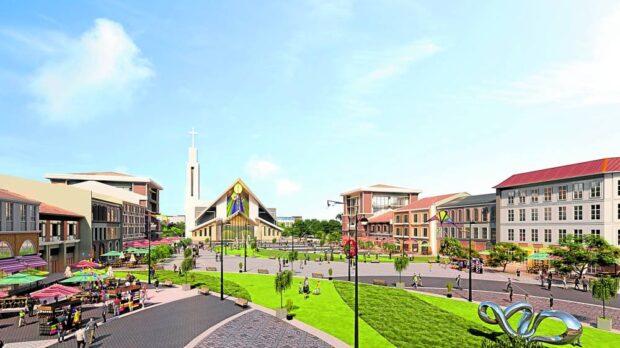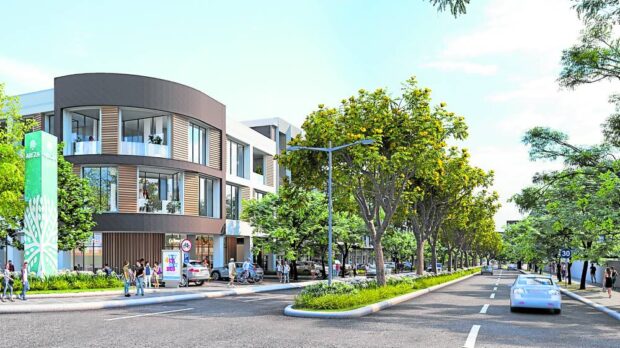
Providing spaces for shops, offices, and workshops is necessary to support entrepreneurs better, making it easier for anyone to start and run businesses close to home. (FILE PHOTO)
When residential projects prioritize producing homes, they often overlook the need for infrastructure to support entrepreneurship. This gap can impede local economic growth and innovation, as most suburbs lack the necessary commercial spaces businesses require to flourish.
In the Philippines, suburban developments typically focus on leisure amenities such as pools, parks, and playgrounds, with minimal commercial elements. However, providing spaces for shops, offices, and workshops is necessary to support entrepreneurs better, making it easier for anyone to start and run businesses close to home.

One of the primary considerations in placing commercial properties in a development project is ensuring they are both accessible and visible. (FILE PHOTO)
Economic enhancement. Commercial properties significantly increase land valuation due to their potential to boost local economies. By incorporating commercial spaces to sustain neighborhood services within residential developments, developers can create vibrant, multi-functional areas that attract more foot traffic and enhance the area’s economic activity. Otherwise, aspiring entrepreneurs would go to distant city centers instead where there are more business opportunities.
Commercial buildings and shophouses must be flexible to accommodate various business types. (FILE PHOTO)
Accessibility, visibility. One of the primary considerations in placing commercial properties in a development project is ensuring they are both accessible and visible. The design exercise involves strategic placement within the development to guarantee easy access for pedestrian and vehicular traffic. Well-connected properties are more likely to attract a higher volume of customers and retain tenants, which in turn drives profitability.
Commercial properties can become catalysts for economic growth by housing a mix of local and larger businesses. (FILE PHOTO)
Adaptability, flexibility. Commercial buildings and shophouses must be flexible to accommodate various business types, from retail shops and restaurants to offices and service providers. This adaptability extends the property’s appeal to a diverse tenant mix and ensures it can evolve with changing market demands.
Stand-alone commercial properties, such as banks, restaurants, or gyms, are independent and usually outside the typical shopping center or mixed-use development. These properties often attract businesses that benefit from being sole entities without direct competition nearby. Investors might choose stand-alone properties for their potential to become landmark sites, thus drawing a consistent customer base. Meanwhile, commercial raw lots allow owners to develop the land according to the needs of prospective ventures.
Commercial properties significantly increase land valuation due to their potential to boost local economies. (FILE PHOTO)
Business-friendly environment. Developers must create environments that reduce startup and operational costs to attract entrepreneurs. This consideration can include offering flexible lease terms, providing shared spaces encouraging collaboration, and integrating essential business services directly within the development.
Commercial properties can become catalysts for economic growth by housing a mix of local and larger businesses. They serve not just the development’s residents but also draw customers from surrounding areas, increasing exposure and revenue in the area.
Well-connected properties are more likely to attract a higher volume of customers and retain tenants, which in turn drives profitability. (FILE PHOTO)
Strategic location, market research. Comprehensive market research is essential to understand the community’s needs and the types of businesses that would thrive there. A strategically located commercial zone within a trusted development brand like the one with Ayala can guarantee better success and growth. Quality masterplanned communities and robust infrastructure, such as high-quality roads, curated landscapes, ample parking, excellent maintenance services, and security, can dramatically increase the area’s attractiveness for long-term growth.
The author (at www.ianfulgar.com) is a leading architect with an impressive portfolio of local and international clients. His team elevates hotels and resorts, condominiums, residences, and commercial and mixed-use township development projects with innovative, cutting-edge design and business solutions that have garnered industry recognition, making him the go-to expert for clients seeking to transform their real estate ventures

